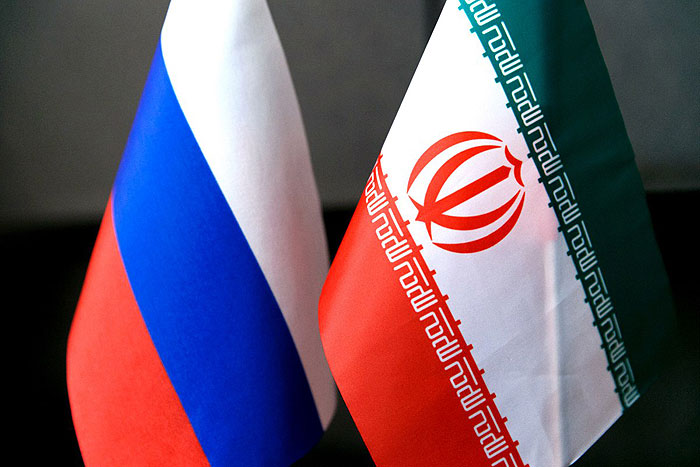In recent years, Iran and Russia have taken significant steps to enhance cooperation across economic, military and political spheres. According to Abbas Araghchi, Iran’s foreign minister, relations between the two nations have never been as close or robust as they are today. Against this backdrop, the upcoming 18th Joint Economic Cooperation Commission in Moscow holds considerable significance. Iran’s Oil Ministry, which oversees the commission, is working to leverage existing opportunities to strengthen bilateral ties across all sectors.
Ali-Mohammad Mousavi, deputy for international affairs and commerce at the Oil Ministry, told the Shana news agency that the commission’s meeting is highly consequential. He noted that the January 2025 signing of a comprehensive strategic partnership agreement between Iran and Russia, along with the Iranian Parliament’s February 2025 approval of a free trade deal with the Eurasian Economic Union, has elevated cooperation between the two nations.
The upcoming meeting is expected to explore expanded collaboration in multiple areas, including:
- Trade, finance and banking
- Transportation, logistics and customs
- Industry and mining
- Agriculture
- Energy
- Health and medicine
- Culture and tourism
- Science and technology
Key details from Shana’s interview on the Iran-Russia Economic Commission follows:
Seventeen joint commissions have been held so far. What areas have they covered?
The Iran-Russia Joint Economic Cooperation Commission has worked across sectors of mutual interest, including trade, finance, banking, transportation, logistics, customs, oil, mining, agriculture, nuclear energy, health, culture, media, tourism, science, technology, regional affairs, telecommunications and space. The goal is to remove barriers to bilateral cooperation and develop strategies for further collaboration between public and private entities in both countries.
What have been the commission’s most significant achievements?
Key outcomes include:
- Trade volume doubling in recent years to nearly $4 billion.
- Activation of the International North-South Transport Corridor, particularly through infrastructure development and completion of the Rasht-Astara railway.
- Enhanced banking cooperation via a reliable payment system and the use of national currencies for trade and investment.
- Strengthened agricultural cooperation, including trade in essential goods.
Numerous cooperation documents have been signed in past meetings. What progress has been made?
Memoranda of understanding (MoUs) were negotiated to ensure actionable commitments, with annual evaluations of relevant ministries and agencies. Iranian authorities have actively pursued these agreements. Additional bilateral deals include:
- Interlinking messaging systems and mutual acceptance of bank cards.
- Launching the North-South Corridor via the Rasht-Astara railway agreement.
- Signing a visa-waiver agreement for group tourism.
- An MoU between Iran’s National Standards Organization and Russia’s GOST R.
How does Iran-Russia economic cooperation help counter sanctions?
Since 2021, when Iran’s Oil Ministry was tasked with leading the joint commission, both nations have prioritized rapid implementation of agreements amid Western sanctions. Experts are leveraging existing capacities to mitigate sanctions’ impact, including:
- Connecting payment and messaging systems.
- Finalizing a trade settlement mechanism using national currencies.
- Expanding cooperation in engineering, equipment exports, pharmaceuticals and other fields.
How have partnerships with Russian firms strengthened Iran’s energy infrastructure and oil production?
Major contracts with Russian companies, totaling nearly $4 billion in investments, have been signed to develop Iranian oil fields. Key projects include:
- Development of the Aban and Paydar-e Gharb fields (76% progress).
- Development of the Cheshmeh-Khosh, Dalpari and Paydar-e Sharq fields (26% progress).
- Additional contracts in other fields are underway or in the awarding phase.
Will the upcoming meeting address Iran’s recent gas import deal with Russia?
A strategic gas trade MoU between Iran’s National Gas Company and Russia’s Gazprom Export, signed in June 2024, aims to boost gas trade, swaps and the creation of a gas hub in Iran. Contract negotiations are ongoing, and the 18th commission will discuss accelerating implementation.
How has the commission impacted Iran’s non-oil exports?
Bilateral trade has doubled to around $4 billion annually. While cooperation has focused on agriculture and essential goods, recent Western exits from Russia have expanded collaboration in technical services, machinery, pharmaceuticals and medical equipment.
What are the key focus areas for the 18th commission?
The January 2025 strategic partnership agreement and February 2025 free trade deal with the Eurasian Union will shape discussions. Key areas include trade, finance, transportation, energy, health, culture, tourism and technology, with an emphasis on implementing existing agreements.


Your Comment